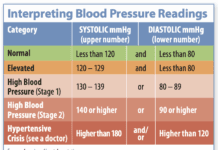[Updated May 4, 2018]
Q: I know omega-3 fats from oily fish like sardines and mackerel are superior to omega-3 supplements. Will the canned versions of these fish provide the same benefits as fresh-caught?
Alice H. Lichtenstein, DSc, director of Tufts’ HNRCA Cardiovascular Nutrition Laboratory, notes:
A:“There is no reason to assume omega-3 fats from oily fish like sardines and mackerel are superior to omega-3 supplements. A fatty acid is a fatty acid, regardless of the source. The main difference between fish and supplements is fish provides high-quality protein and other nutrients, which are lacking in supplements. Also, fish is a good alternative to protein foods high in saturated fat, such as meat.” So, eating fish provides multiple benefits at the same time.
“Canned fish products such as sardines and mackerel are good sources of omega-3 fat,” adds Lydia Fernandes, a dietetic intern at Frances Stern Nutrition Center at Tufts Medical Center. Direct comparisons between canned and fresh fish are challenging because some of the difference in omega-3 content comes from variations in the fish, such as the exact species, what they eat, where they’re harvested and when, rather than canning per se. Regardless, an oily fish, including canned, is a much better source of omega-3 fat than a white fish like tilapia.
“It is important to keep in mind, however, that canned seafood is often higher in sodium than fresh (depending on how it’s prepared),” Fernandes says. This can vary based on what the seafood is canned in and whether salt is added, though. For example, sardines canned in tomato sauce may be higher in sodium than sardines canned in oil. Compare Nutrition Facts labels to find the best options.






















